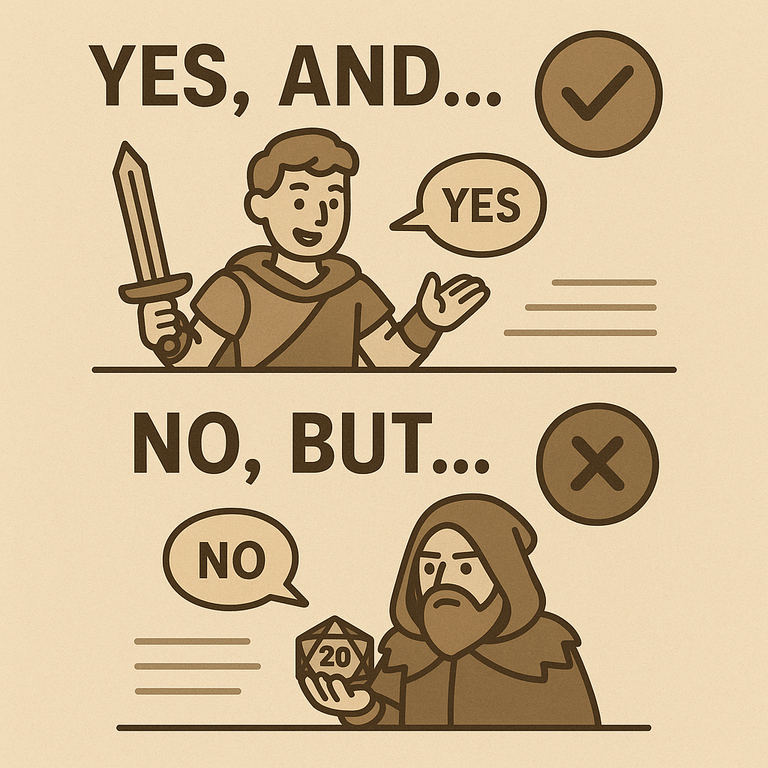Hey everyone,
It's Brain Drain Friday, and I thought I would get a jumpstart and make the post before I go shopping and turn my brain into jello. So, I wanted to be able to put at least a little thought into it first. Today, let's talk about two of the most powerful phrases in a Game Master's vocabulary: "Yes, and..." and "No, but...".

These are simple rules of thumb that form the foundation of collaborative storytelling and can make your games more dynamic and fun for everyone at the table.
The Power of "Yes, and..."
This is the golden rule of improv. It’s about accepting the reality a player presents and then building upon it. When a player wants to do something creative, instead of shutting them down, you embrace their idea and add a new element. This validates their creativity and keeps the story moving forward.
Example:
- Player: "While the guards are distracted, I want to try and swing on that big, fancy chandelier to get across the ballroom!"
- A "No" GM might say: "You can't do that, there are no rules for swinging on chandeliers." (This stops the action.)
- A "Yes, and..." GM says: "Yes, you can absolutely try that, and as you start to swing, you notice that the chandelier is decorated with fragile, priceless crystals that begin to chime loudly, threatening to alert the entire room!"
The player gets to do their cool idea, but now there's a new, interesting complication.
The Necessity of "No, but..."
Sometimes, you just have to say no. A player's idea might be completely game-breaking, nonsensical, or something that would ruin the fun for others. Saying a flat "no" can feel confrontational and kill the mood. Similar to the "fail forward" method, "No, but..." is the tool you use to deny the specific request while still offering a positive or alternative path forward. It respects the player's intent while protecting the integrity of the game.
Example:
- Player: "I want to convince the king to just give me his crown and the entire kingdom."
- A "No" GM might say: "No, that's stupid. He'd never do that." (This is dismissive.)
- A "No, but..." GM says: "No, the king would never just hand over his kingdom, but he is clearly intrigued by your audacity. He tells you that if you can retrieve the legendary Sunstone from the Dragon's Peak, he would be so impressed that he would grant you any other single favor you desire."
The original, impossible request is denied, but it's immediately replaced with a new, exciting quest that still makes the player feel like their action had a meaningful impact.
Using these two simple phrases helps turn the game from a confrontational "GM vs. Players" dynamic into a truly collaborative story where everyone is building something fun together.
I hope everyone has a fantastic weekend!
As always,
Michael Garcia a.k.a. TheCrazyGM

